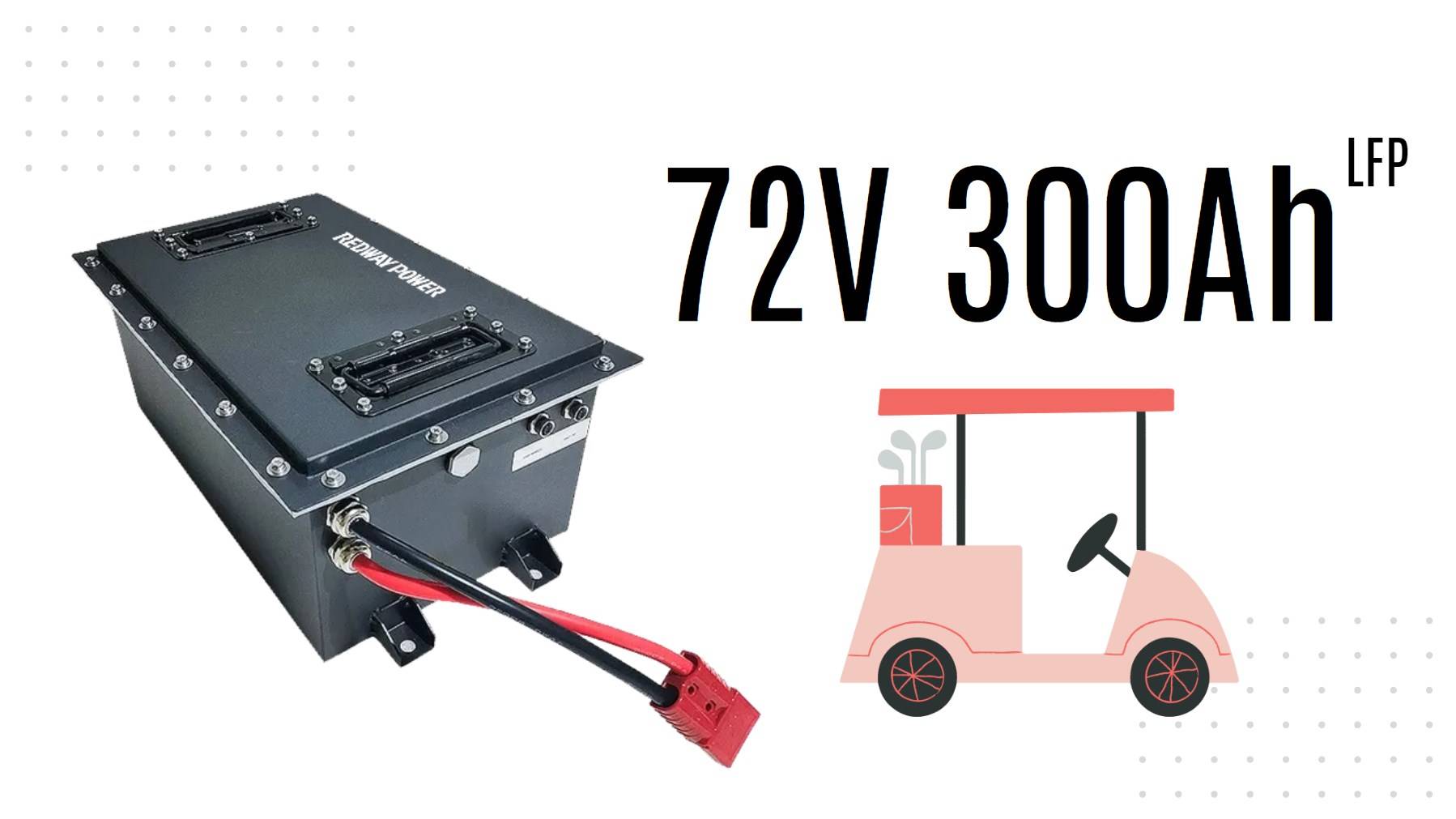
Blog
How to Select the Right 72V 300Ah Lithium Battery Pack?

Selecting the right 72V 300Ah lithium battery pack is crucial for ensuring optimal performance in applications such as electric vehicles, renewable energy systems, and more. Understanding voltage requirements, battery chemistry, cycle life, and practical applications will guide you in making an informed decision.
What Are the Key Voltage and Capacity Requirements for a 72V Battery?
When selecting a 72V battery, it is essential to understand both voltage and capacity:
- Voltage: A nominal voltage of 72 volts is necessary to match your system’s requirements, ensuring compatibility with your equipment.
- Capacity: The capacity rating, such as 300Ah, indicates how much energy the battery can store, affecting how long it can power your devices before needing a recharge.
These specifications directly influence performance and suitability for your needs.Chart: Voltage and Capacity Overview
| Specification | Value |
|---|---|
| Nominal Voltage | 72V |
| Capacity | 300Ah |
| Total Energy | 21,600Wh |
How Do You Evaluate Different Battery Chemistries?
Evaluating battery chemistry is vital when selecting a lithium battery:
- Lithium Iron Phosphate (LiFePO4): Known for its safety, stability, and long cycle life; ideal for applications requiring high discharge rates.
- Lithium Nickel Manganese Cobalt (NMC): Offers high energy density but may be less stable than LiFePO4.
- Lithium Cobalt Oxide (LCO): Typically used in consumer electronics due to its high energy density but not recommended for heavy-duty applications.
Understanding these chemistries helps you choose the right battery based on your specific needs.Chart: Comparison of Lithium Chemistries
| Chemistry | Energy Density | Cycle Life | Stability |
|---|---|---|---|
| LiFePO4 | Moderate | Up to 4000 cycles | High |
| NMC | High | Up to 2000 cycles | Moderate |
| LCO | Very High | Up to 500 cycles | Low |
What Should You Assess Regarding Cycle Life and Performance?
Cycle life is a critical factor that determines how long a battery will last:
- Cycle Life: Refers to the number of complete charge-discharge cycles a battery can undergo before its capacity significantly diminishes; look for batteries with at least 2000–4000 cycles.
- Performance Metrics: Evaluate discharge rates, efficiency under load, and temperature tolerance to ensure reliable operation.
These assessments help ensure that your battery will meet performance expectations throughout its lifespan.
What Advantages Do 72V Lithium Batteries Offer Over Lead-Acid Options?
The advantages of using lithium batteries over traditional lead-acid batteries include:
- Weight Reduction: Lithium batteries are significantly lighter than lead-acid options, improving handling and efficiency.
- Longer Lifespan: With proper care, lithium batteries can last up to three times longer than lead-acid batteries.
- Faster Charging Times: Most lithium batteries charge much faster, allowing for quicker turnaround between uses.
These benefits make lithium batteries an attractive option for various applications.Chart: Advantages Overview
| Advantage | Description |
|---|---|
| Weight Reduction | Lighter than lead-acid batteries |
| Longer Lifespan | Lasts up to three times longer |
| Faster Charging | Shorter charging times |
What Are Common Applications for 72V Lithium Batteries?
Common applications include:
- Electric Vehicles (EVs): Providing reliable power storage for electric cars and scooters.
- Renewable Energy Systems: Used in solar power setups to store energy efficiently.
- Industrial Equipment: Powering forklifts and other heavy machinery that require robust energy solutions.
This versatility makes them suitable across various sectors.
What Are the Cost Considerations for Purchasing a 72V 300Ah Lithium Battery?
When considering costs:
- Initial Investment vs Long-Term Savings: While upfront costs may be higher than lead-acid options, their longevity often results in lower overall costs over time.
- Maintenance Costs: Generally lower than traditional batteries due to reduced upkeep needs.
- Operational Savings: Improved efficiency can lead to significant savings on electricity bills.
Evaluating these factors helps determine the total cost of ownership effectively.
How Do You Properly Maintain a 72V Lithium Battery Pack?
To maximize performance:
- Regular Charging: Avoid deep discharges; recharge after each use or at least every few days if not used regularly.
- Proper Storage Conditions: Store in a cool, dry place away from extreme temperatures; ideally between 32°F and 113°F (0°C – 45°C).
- Periodic Inspections: Check connections for corrosion or damage; ensure terminals are clean and secure.
Following these maintenance practices ensures optimal battery health over time.
What Are the Best Practices for Storing Lithium Batteries?
To ensure optimal performance during storage:
- Store Fully Charged: Always store your battery fully charged to prevent sulfation.
- Avoid Extreme Temperatures: Keep stored batteries away from extreme heat or cold conditions which can affect performance.
- Regularly Check Condition: Inspect stored batteries periodically to ensure they remain in good condition.
Implementing these practices helps maintain battery health during off-seasons or periods of inactivity.Expert Views:
“Selecting the right 72V 300Ah lithium battery pack is crucial not only for performance but also ensures reliability across various applications,” states an expert in energy storage solutions.
FAQ Section
- Q1: How long do lithium batteries typically last?
With proper care, lithium batteries can last around 10 years or more. - Q2: Can I use my existing charger with a new lithium battery?
It’s essential to use a charger specifically designed for lithium batteries to ensure safety and efficiency. - Q3: What should I do if my battery isn’t holding a charge?
Check connections and ensure proper charging practices; if issues persist, consult a professional technician for assessment.



